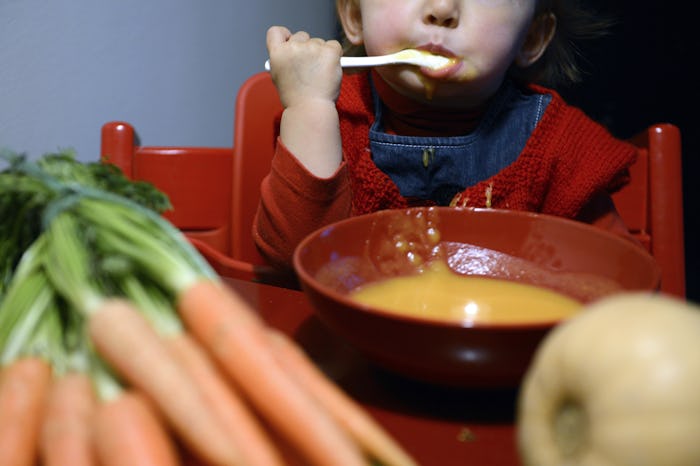Life

Listeria Symptoms In Kids Can Be Easily Mistaken For This Illness
In recent weeks, grocery stores around the country have been pulling snacks like granola bars off the shelves and frozen veggies from the freezers as a result of a recall that says certain foods may be contaminated with listeria. Popular stores like Trader Joe’s and Whole Foods Market have recalled stock and Quaker Oats just announced a recall of its own on Monday. Unfortunately, some of the products included in the recall tend to be a part of easy weeknight dinners or snacks in your child’s lunchbox. While listeria infections are relatively uncommon and most dangerous for pregnant women and people with compromised immune systems, listeria symptoms in healthy kids can be mistaken for the flu — and parents might never realize they were infected with the bacteria in the first place.
Listeria bacteria can cause serious illness or death in pregnant women, the elderly, young babies and children. For most people the food-borne illness produces flu-like symptoms and may take up to three days for them to show any symptoms. Some of the most common symptoms are fever, muscle aches, nausea, and diarrhea.
Since children tend to have weaker immune systems in general, parents should pay close attention to possible symptoms and seek medical attention if needed.
If you believe your little one has possibly eaten a recalled product and is showing any of these symptoms, seek see your doctor as well and double-check the FDA’s recall list. Be sure to throw the products away immediately or return it to the store for a full refund. Let your doctor know if any of the foods your child ate match up with what’s on the list as well, because untreated listeria can affect a child's nervous system, which can cause serious health issues in the future. A proper diagnosis can be done with a blood test.
Most listeria infections can be treated with antibiotics. Paracetamol or ibuprofen can be used to ease muscle aches and fever. But if your child has a severe listeria infection they may need to be hospitalized for an intravenous antibiotic treatment. For less severe infections, you'll likely be asked to make sure your child gets plenty of rest and fluids.
With hundreds of brands recalled in the United States and Canada, it’s understandable if parents are overly cautious with food in the wake of these widespread recalls. The best way to prevent listeria infections is to handle, store, and prepare food properly. Cooking food thoroughly can kill the bacteria and storing foods at cool enough temperatures can prevent bacteria from growing.
Most people never know they've had a listeria infection and in most cases an infection can be treated with strong antibiotics. But all recalls can be frightening, especially when thinking about the safety of your little one's health. Keeping up with information on recent food recalls is just one way to keep both you and your child healthy.